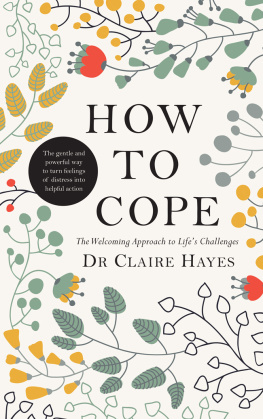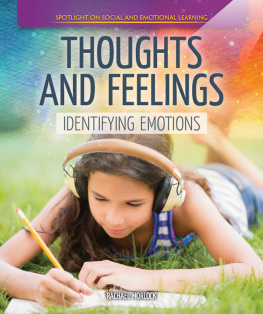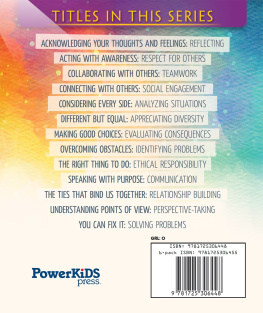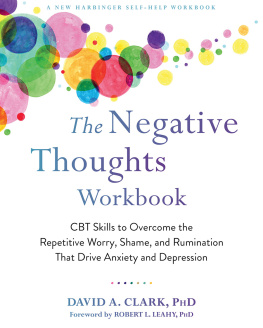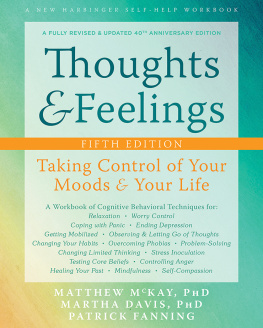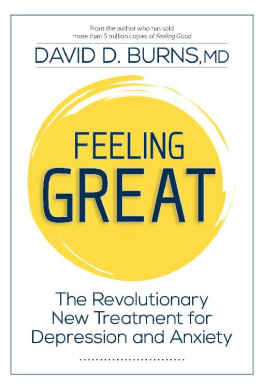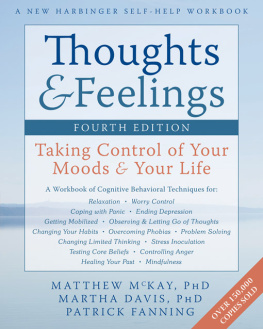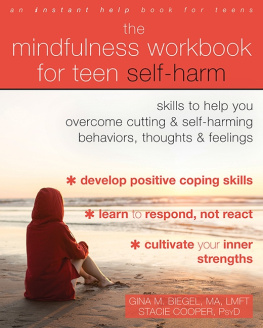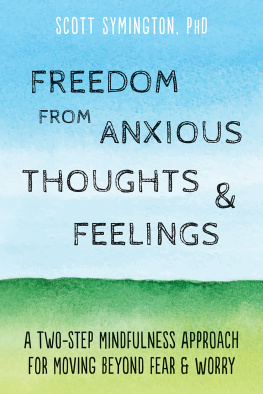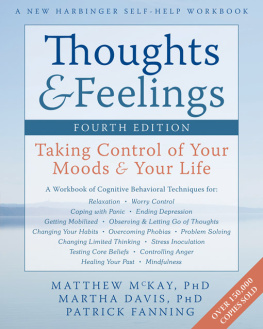How to Cope
The Welcoming Approach to Lifes Challenges
Dr Claire Hayes
Gill & Macmillan
Feedback from people who have benefited from Claire Hayess unique way of working:
Claire provided me with techniques to help me
calm myself when I was thinking about something
that I knew would upset me.
EMMA, AGED 32
I had suffered from anxiety and panic
periodically since my early twenties. I was at a
particularly low ebb when my doctor gave me
Claires number. Without exaggeration, she
changed my life. I found the Cognitive
Behavioural Therapy particularly effective and
also the Coping Triangle. Claire gave me the tools
to manage my anxiety and panic. I also found
Claires gentle, calm, non-judgemental manner
helped me accept that I wasnt alone.
MARY, AGED 52
When I went to see Claire, I was lost. To put it
simply she gave me direction, she gave me a sense
of purpose, and a sense of hope. Only recently I
feel I have started to take control of my own life
again and I feel that I am worth something. It has
been a very difficult journey, but today I feel that I
have got stronger.
ENDA, AGED 35
In memory of Noreen Barrett, my aunt and friend.
The Guest House
This being human is a guest house.
Every morning a new arrival.
A joy, a depression, a meanness,
Some momentary awareness comes
As an unexpected visitor.
Welcome and entertain them all!
Even if theyre a crowd of sorrows,
who violently sweep your house
empty of its furniture,
still treat each guest honourably.
He may be clearing you out
for some new delight.
The dark thought, the shame, the malice,
meet them at the door laughing,
and invite them in.
Be grateful for whoever comes,
because each has been sent
as a guide from beyond.
MEWLANA JALALUDDIN RUMI (TRANSLATED BY COLEMAN BARKS), FROM THE ESSENTIAL RUMI.
Contents
Part 1
The Welcoming Approach
Introduction
And suddenly you know: its time to start
something new and trust the magic of beginnings.
MEISTER ECKHART
How many of us can honestly say that we welcome every challenge that life brings? While some challenges can be exciting and can stretch us to discover abilities and strengths we never knew we had, others may be very difficult. At any moment we can hear news that causes us to think thoughts such as This is terrible, How am I ever going to cope? This is all my fault, I didnt do enough, or even This is too muchI cant take any more.
Thoughts like these can cause us to feel upset, anxious, sad, angry, guilty, embarrassed, ashamed or depressed. Lifes challenges vary and, interestingly, something that may seem overwhelming for one person can be exhilarating for someone else.
Some people are naturally good at coping and tend not to get too distressed by anything. They tend to be flexible and adaptable and are skilled at asking for, and taking, help. Many of us, though, struggle at asking for help, seeing it as a weakness to do so. If we have a lot to deal with already and dont realise how much of a struggle it is to manage, it may take only a very small challenge to cause us incredible distress. Challenges that we could easily cope with one day might be just too much on a different day. We may react by withdrawing, lashing out, or even harming ourselves or someone else. It can be a relief to remember that we always have choices about how we react to lifes challenges.
This book is a book of hope. While life itself teaches us that life can be challenging, this book invites you to welcome these challenges and the feelings and thoughts that you have about them, so that you are better able to deal with them proactively. It does so by describing the Welcoming Approach and illustrating, through a number of case studies, how it can be used to help people develop resilience and strength.
Its important to emphasise that I have devised each of these case studies specifically for this book. While the people I describe are all fictitious, their challenges are similar to those facing real people whom I have been privileged to work with over the past twenty years as a clinical psychologist and an educational psychologist.
Some of the challenges are universal, while others are very specific. In creating one particular story about a young man who had a heart transplant I was inspired by the courage, dignity and resilience of my friend Aoife, who underwent a double lung transplant in 2013. She has given me her permission to acknowledge her strength in coping with one of lifes greatest challenges.
In writing about the Welcoming Approach I have also drawn on a range of learning experiences I have had the opportunity to experience over the past thirty years.
This book is in two parts. The first describes the Welcoming Approach in detail. It presents two case studies to illustrate how our thoughts, beliefs and actions can affect our feelings. Part 2 deals with how the Welcoming Approach can be applied to helping us with particular challenges that we will all face at some stage in our lives: pressure, rejection, loss, failure, success and change. These are not our only life challenges and may not be our greatest. Life is very much an individual experience, and some of the stories you read in this book may not be relevant to you at this time. If that is so I invite you to welcome your feelings, pay attention to your thoughts, question what you believe, and concentrate on what helpful actions you can take.
I hope you will enjoy reading this book and will find it informative. Sometimes looking at lifes challenges can actually result in our feeling pressured and overwhelmed, particularly if we think there is nothing we can do to change things. If that happens to you, please welcome your feelings as indicators that you may need some support at this time, and follow up by talking to someone who cares about you and who is in a position to provide real support. This may be a family member, a friend, or a GP. As you will see, feelings generally make sense, but we dont need to panic because we have them: we just need to do something about them!
Chapter 1
Welcome to the Welcoming Approach
Cad mle filte: A hundred thousand welcomes
P icture a three-year-old child playing. She is holding a balloon and is laughing as it bounces in front of her. Suddenly it breaks free of her grip. She stands puzzled for a moment before beginning to cry. Most of us would do our best to rush to the rescue, jump to catch the balloon, anticipating her grateful smile. Sometimes that may happen; often, though, the balloon ascends quickly out of reach and bursts on the branch of a tree.
It can be very difficult to listen to the cries of the little girl. Many of us would wish at that moment that we had a bigger, brighter, better balloon to give her so as to take her mind off her loss and make her feel happy once more. Few of us would use that moment to explain to her that the rest of her life will be just like this. When she has something precious that she thinks makes her feel happy it can blow away, without any warning, and burst. As we cannot get the original balloon back, some of us might comfort the child and tell her not to worry and that we will buy her an even better balloon. Some of us might scold her for crying, tell her that it was her own fault anyway for not holding on tightly enough, and hope that she will have learnt her lesson for the future.

